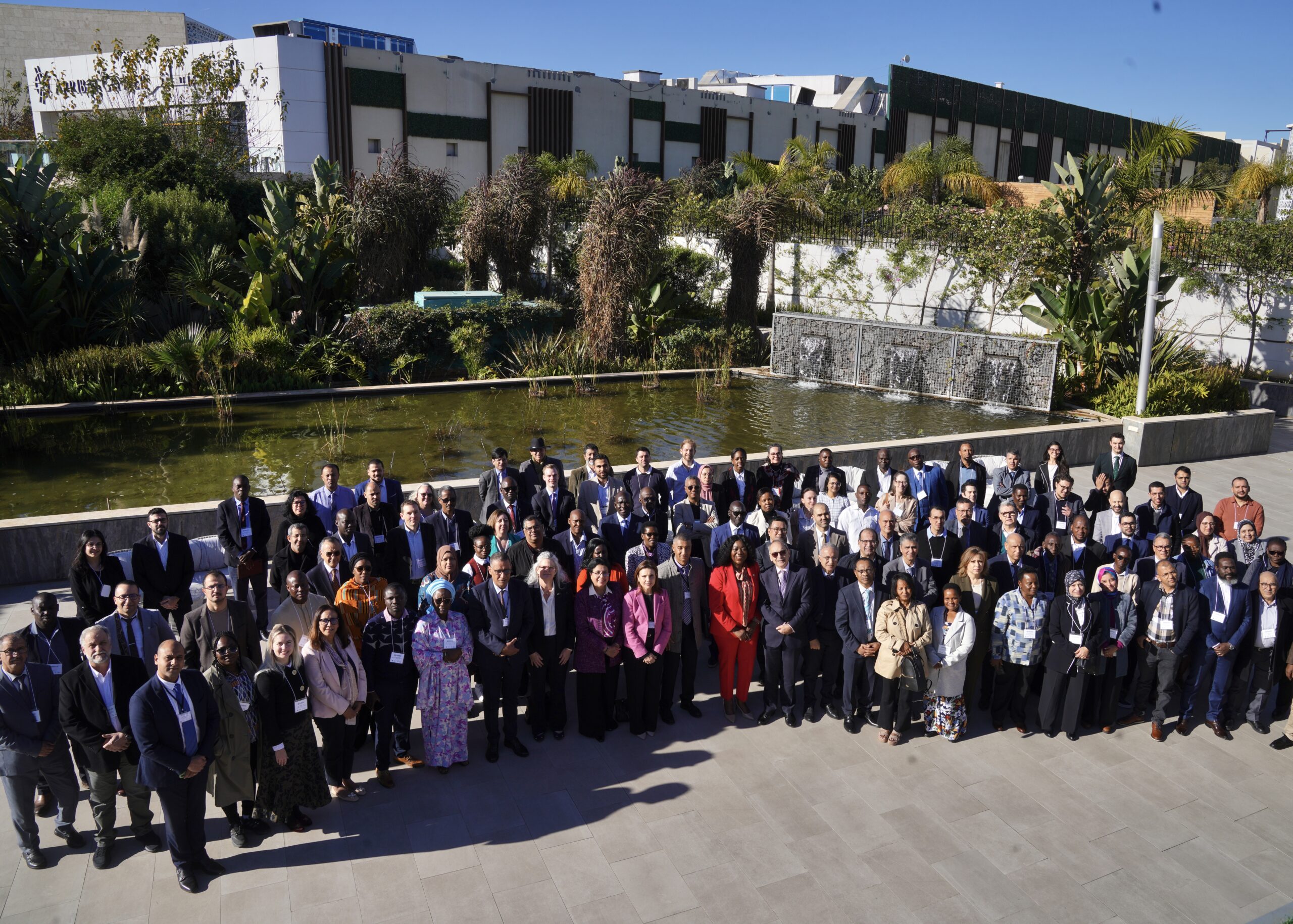SDPU Concludes Pan-African Workshop on Water Monitoring in Morocco

Last week, the Sustained Dialogue on Peaceful Uses (SDPU) concluded the Workshop on Pan-African Water Resource Monitoring and Data Sharing with Nuclear Science and Technology, cohosted by CRDF Global and Morocco’s National Centre for Nuclear Energy, Science, and Technology (CNESTEN) in Rabat. The workshop convened distinguished leaders and technical experts from 20 countries across the African continent and international organizations including the African Union Commission, African Development Bank, International Atomic Energy Agency (IAEA), International Water Management Institute, and other international and regional institutions to discuss challenges and opportunities in water resource management, particularly using nuclear and isotopic techniques, to support United Nations Sustainable Development Goal 6 (UN SDG 6) – Clean Water and Sanitation.
Secretary General of Energy Transition and Sustainable Development Ms. Mohamed Ouhmed opened the meeting with insightful remarks and key input from the government of Morocco. U.S. Deputy Chief of Mission Aimee Cutrona and UK Ambassador Simon Martin highlighted U.S. and UK support for Morocco’s leadership in hosting this important workshop. IAEA Deputy Director General Najat Mokhtar shared the perspective of her organization and its ongoing efforts in the water security space. Moroccan government officials concluded the opening ceremony with input from Mme Salima Lyoussoufi of the Moroccan Ministry of Foreign Affairs, African Cooperation, and Moroccan Expatriates; Dr. Moulay Driss of the Ministry of Equipment and Water; and Director General Hamid Marah of CNESTEN, who underscored Morocco’s leadership in applying nuclear science and technology to achieve national objectives.
Facilitated by Dr. Assefa Melesse of Florida International University, the workshop featured engaging presentations, dynamic panel discussions, and productive breakout sessions on workforce development, equipment maintenance, data usage, and policy considerations. These sessions fostered insightful dialogue among policymakers, technical experts, and regional stakeholders offering actionable solutions for enhancing water security, data sharing, and laboratory capacity to increase African expertise in leveraging these applications of nuclear technology to craft evidence-based public policy that support national and regional water security priorities. The workshop underscored the critical challenges facing water security efforts across the continent and highlighted the potential for increased collaboration in achieving water-related development goals. The event also featured an overview and discussion on the GloWAL network, operated by the IAEA.
The workshop concluded with a call to action for continental coordination on workforce development, hydrological equipment maintenance, data sharing, and science policy and communication. Stay tuned as the SDPU will have a full report on the workshop topics and outcomes on its website soon (www.sustaineddialogue.com).
The SDPU sincerely thanks CNESTEN for the fruitful partnership in the planning and implementation of this workshop and for the invaluable contributions from experts in attendance. This workshop and the SDPU are jointly funded by the U.S. Department of State and the UK Department for Energy Security and Net Zero.



